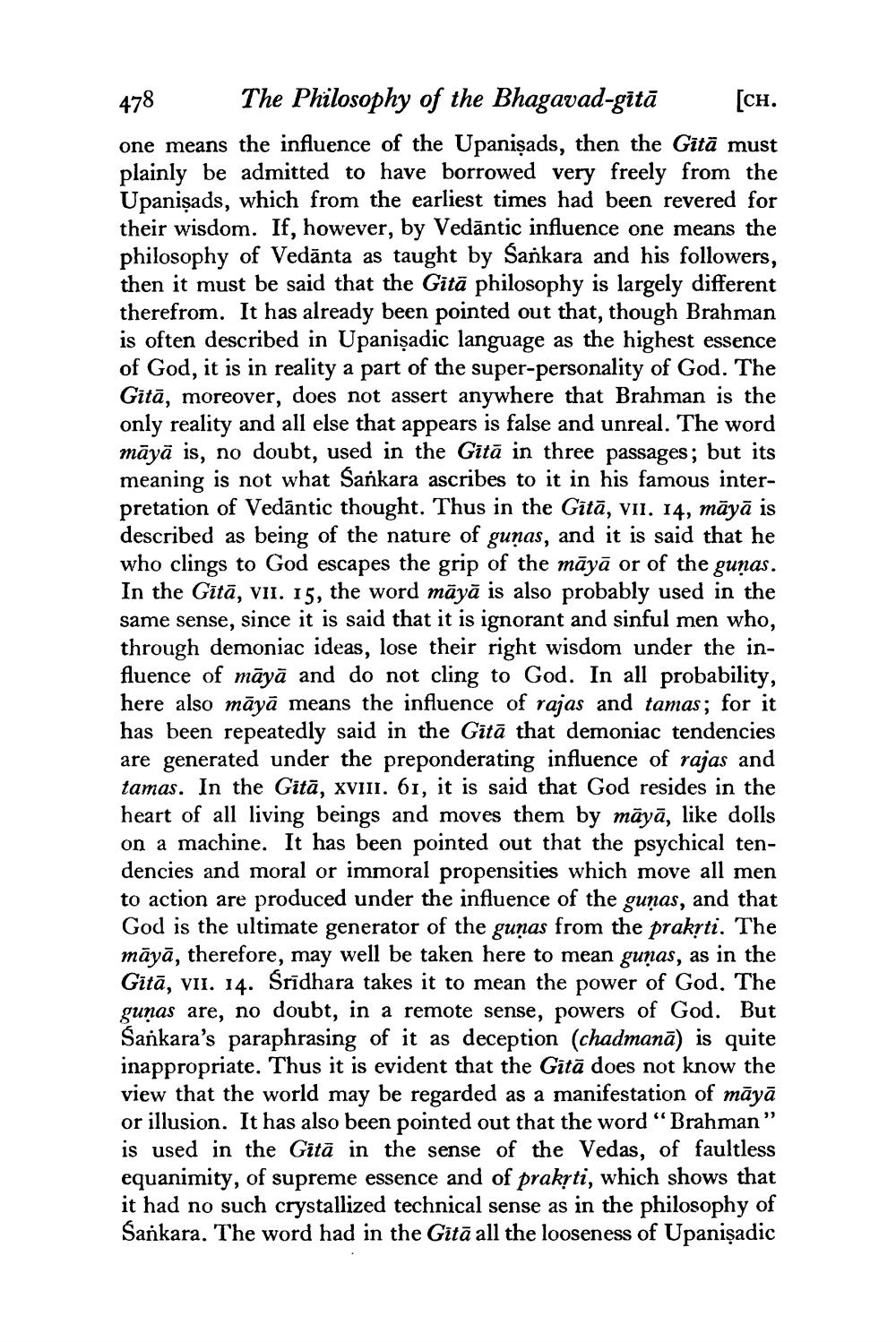________________
478
The Philosophy of the Bhagavad-gitā [ch. one means the influence of the Upanişads, then the Gītā must plainly be admitted to have borrowed very freely from the Upanişads, which from the earliest times had been revered for their wisdom. If, however, by Vedāntic influence one means the philosophy of Vedānta as taught by Sankara and his followers, then it must be said that the Gitā philosophy is largely different therefrom. It has already been pointed out that, though Brahman is often described in Upanişadic language as the highest essence of God, it is in reality a part of the super-personality of God. The Gitā, moreover, does not assert anywhere that Brahman is the only reality and all else that appears is false and unreal. The word māyā is, no doubt, used in the Gitā in three passages; but its meaning is not what Sankara ascribes to it in his famous interpretation of Vedāntic thought. Thus in the Gītā, vii. 14, māyā is described as being of the nature of guņas, and it is said that he who clings to God escapes the grip of the māyā or of the gunas. In the Gītā, vii. 15, the word māyā is also probably used in the same sense, since it is said that it is ignorant and sinful men who, through demoniac ideas, lose their right wisdom under the influence of māyā and do not cling to God. In all probability, here also māyā means the influence of rajas and tamas; for it has been repeatedly said in the Gītā that demoniac tendencies are generated under the preponderating influence of rajas and tamas. In the Gitā, XVIII. 61, it is said that God resides in the heart of all living beings and moves them by māyā, like dolls on a machine. It has been pointed out that the psychical tendencies and moral or immoral propensities which move all men to action are produced under the influence of the guņas, and that God is the ultimate generator of the gunas from the prakyti. The māyā, therefore, may well be taken here to mean gunas, as in the Gītā, vii. 14. Srīdhara takes it to mean the power of God. The gunas are, no doubt, in a remote sense, powers of God. But Sankara's paraphrasing of it as deception (chadmanā) is quite inappropriate. Thus it is evident that the Gītā does not know the view that the world may be regarded as a manifestation of māyā or illusion. It has also been pointed out that the word “Brahman” is used in the Gitā in the sense of the Vedas, of faultless equanimity, of supreme essence and of prakrti, which shows that it had no such crystallized technical sense as in the philosophy of Sankara. The word had in the Gitā all the looseness of Upanişadic




